Anpassungsfähigkeit und Resilienz des Finanzsystems
Diese Forschungsgruppe untersucht kritische Aspekte der Anpassungsfähigkeit und Widerstandsfähigkeit von Finanzsystemen. Sie analysiert die Auswirkungen von Naturkatastrophen auf Finanzsysteme, die Auswirkungen politischer Präferenzen für die grüne Transformation und die Bedeutung von Kultur in den Volkswirtschaften.
Forschungscluster
Finanzresilienz und RegulierungIhr Kontakt

Mitglied - Abteilung Finanzmärkte
PROJEKTE
07.2016 ‐ 12.2018
Relationship Lenders and Unorthodox Monetary Policy: Investment, Employment, and Resource Reallocation Effects
Leibniz-Gemeinschaft
We combine a number of unique and proprietary data sources to measure the impact of relationship lenders and unconventional monetary policy during and after the European sovereign debt crisis on the real economy. Establishing systematic links between different research data centers (Forschungsdatenzentren, FDZ) and central banks with detailed micro-level information on both financial and real activity is the stand-alone proposition of our proposal. The main objective is to permit the identification of causal effects, or their absence, regarding which policies were conducive to mitigate financial shocks and stimulate real economic activities, such as employment, investment, or the closure of plants.
01.2015 ‐ 12.2019
Interactions between Bank-specific Risk and Macroeconomic Performance
Deutsche Forschungsgemeinschaft (DFG)
Referierte Publikationen
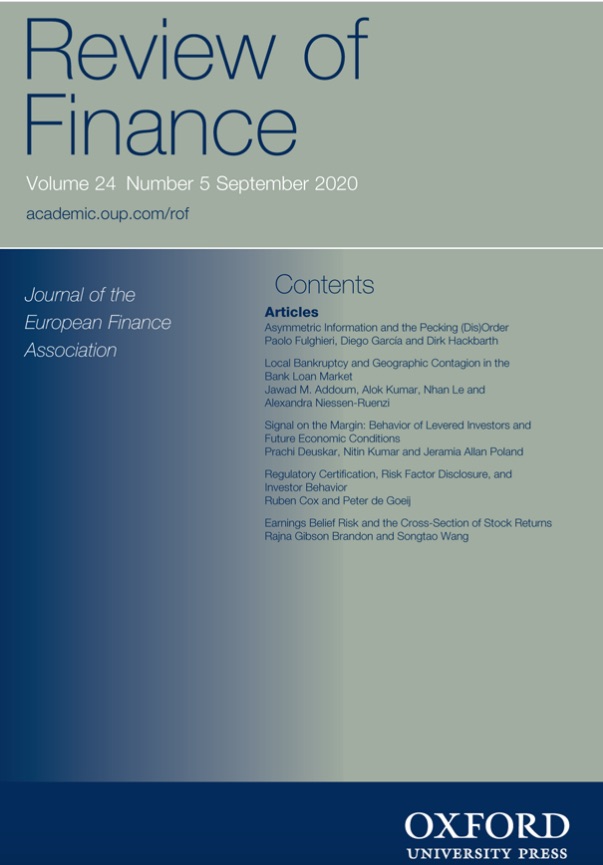
The Impact of Dark Trading and Visible Fragmentation on Market Quality
in: Review of Finance, Nr. 4, 2015
Abstract
Two important characteristics of current equity markets are the large number of competing trading venues with publicly displayed order books and the substantial fraction of dark trading, which takes place outside such visible order books. This article evaluates the impact on liquidity of dark trading and fragmentation in visible order books. Dark trading has a detrimental effect on liquidity. Visible fragmentation improves liquidity aggregated over all visible trading venues but lowers liquidity at the traditional market, meaning that the benefits of fragmentation are not enjoyed by investors who choose to send orders only to the traditional market.
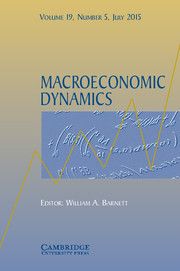
Labor Market Volatility, Skills, and Financial Globalization
in: Macroeconomic Dynamics, Nr. 5, 2014
Abstract
We analyze the impact of financial globalization on volatilities of hours worked and wages of high-skilled and low-skilled workers. Using cross-country, industry-level data for the years 1970–2004, we establish stylized facts that document how volatilities of hours worked and wages of workers with different skill levels have changed over time. We then document that the volatility of hours worked by low-skilled workers has increased the most in response to the increase in financial globalization. We develop a dynamic stochastic general equilibrium model of a small open economy that is consistent with the empirical results. The model predicts that greater financial globalization increases the volatility of hours worked, and this effect is strongest for low-skilled workers.
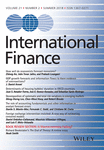
Do Better Capitalized Banks Lend Less? Long-run Panel Evidence from Germany
in: International Finance, Nr. 1, 2014
Abstract
Higher capital features prominently in proposals for regulatory reform. But how does increased bank capital affect business loans? The real costs of increased bank capital in terms of reduced loans are widely believed to be substantial. But the negative real-sector implications need not be severe. In this paper, we take a long-run perspective by analysing the link between the capitalization of the banking sector and bank loans using panel cointegration models. We study the evolution of the German economy for the past 44 years. Higher bank capital tends to be associated with higher business loan volume, and we find no evidence for a negative effect. This result holds both for pooled regressions as well as for the individual banking groups in Germany.
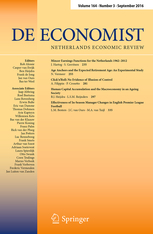
An Empirical Analysis of Legal Insider Trading in The Netherlands
in: De Economist, Nr. 1, 2014
Abstract
In this paper, we employ a registry of legal insider trading for Dutch listed firms to investigate the information content of trades by corporate insiders. Using a standard event-study methodology, we examine short-term stock price behavior around trades. We find that purchases are followed by economically large abnormal returns. This result is strongest for purchases by top executives and for small market capitalization firms, which is consistent with the hypothesis that legal insider trading is an important channel through which information flows to the market. We analyze also the impact of the implementation of the Market Abuse Directive (European Union Directive 2003/6/EC), which strengthens the existing regulation in the Netherlands. We show that the new regulation reduced the information content of sales by top executives.
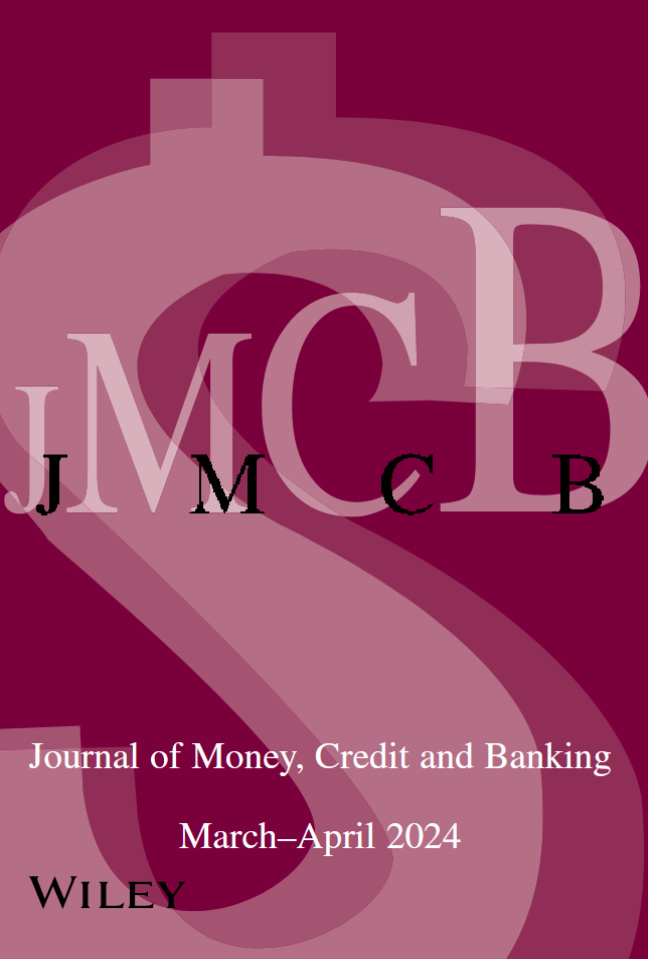
Discussion of De Haas and Van Lelyveld
in: Journal of Money, Credit and Banking, s1 2014
Publikation lesenArbeitspapiere
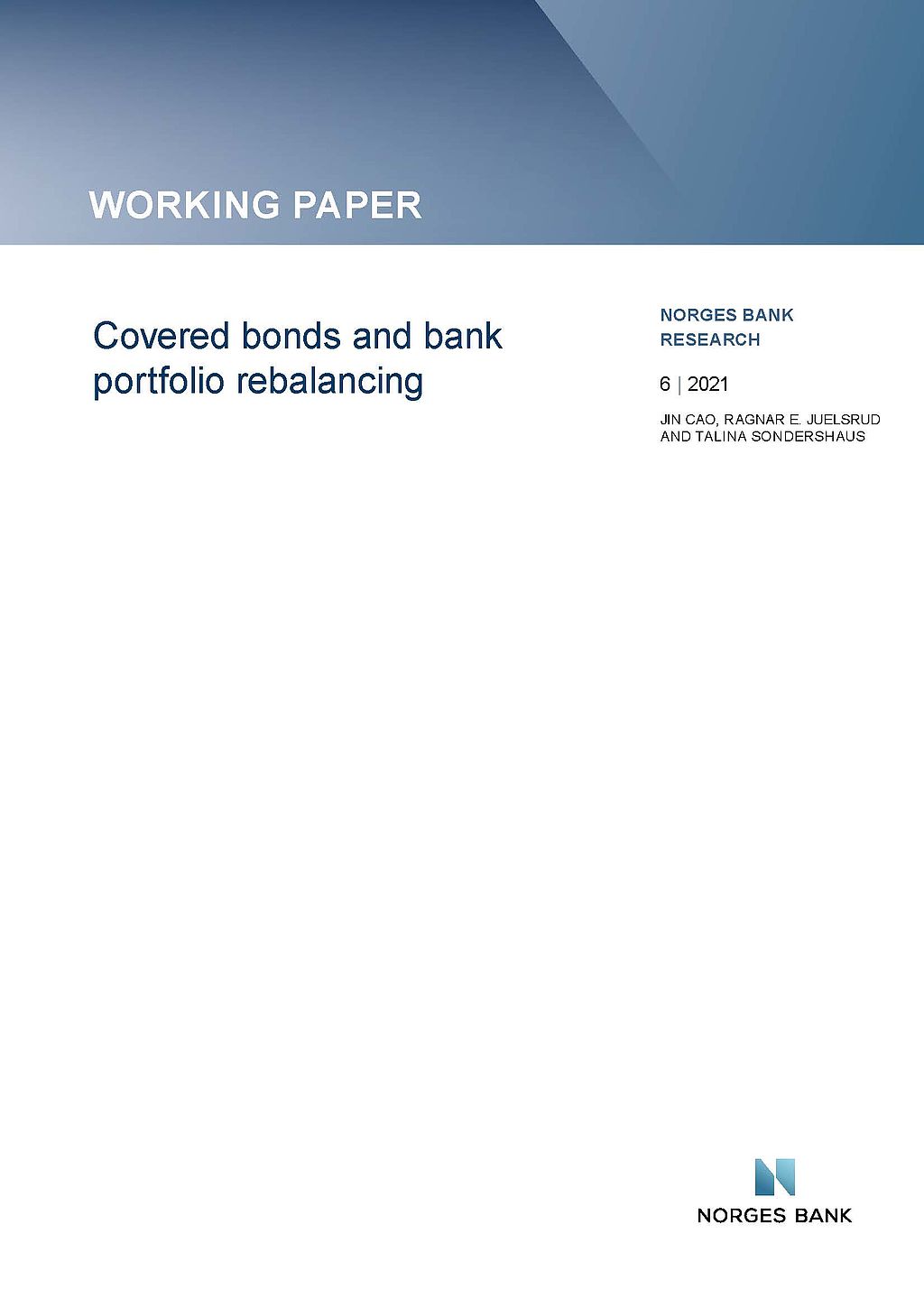
Covered Bonds and Bank Portfolio Rebalancing
in: Norges Bank Working Papers, Nr. 6, 2021
Abstract
We use administrative and supervisory data at the bank and loan level to investigate the impact of the introduction of covered bonds on the composition of bank balance sheets and bank risk. Covered bonds, despite being collateralized by mortgages, lead to a shift in bank lending from mortgages to corporate loans. Young and low-rated firms in particular receive more credit, suggesting that overall credit risk increases. At the same time, we find that total balance sheet liquidity increases. We identify the channel in a theoretical model and provide empirical evidence: Banks with low initial liquidity and banks with sufficiently high risk-adjusted return on firm lending drive the results.
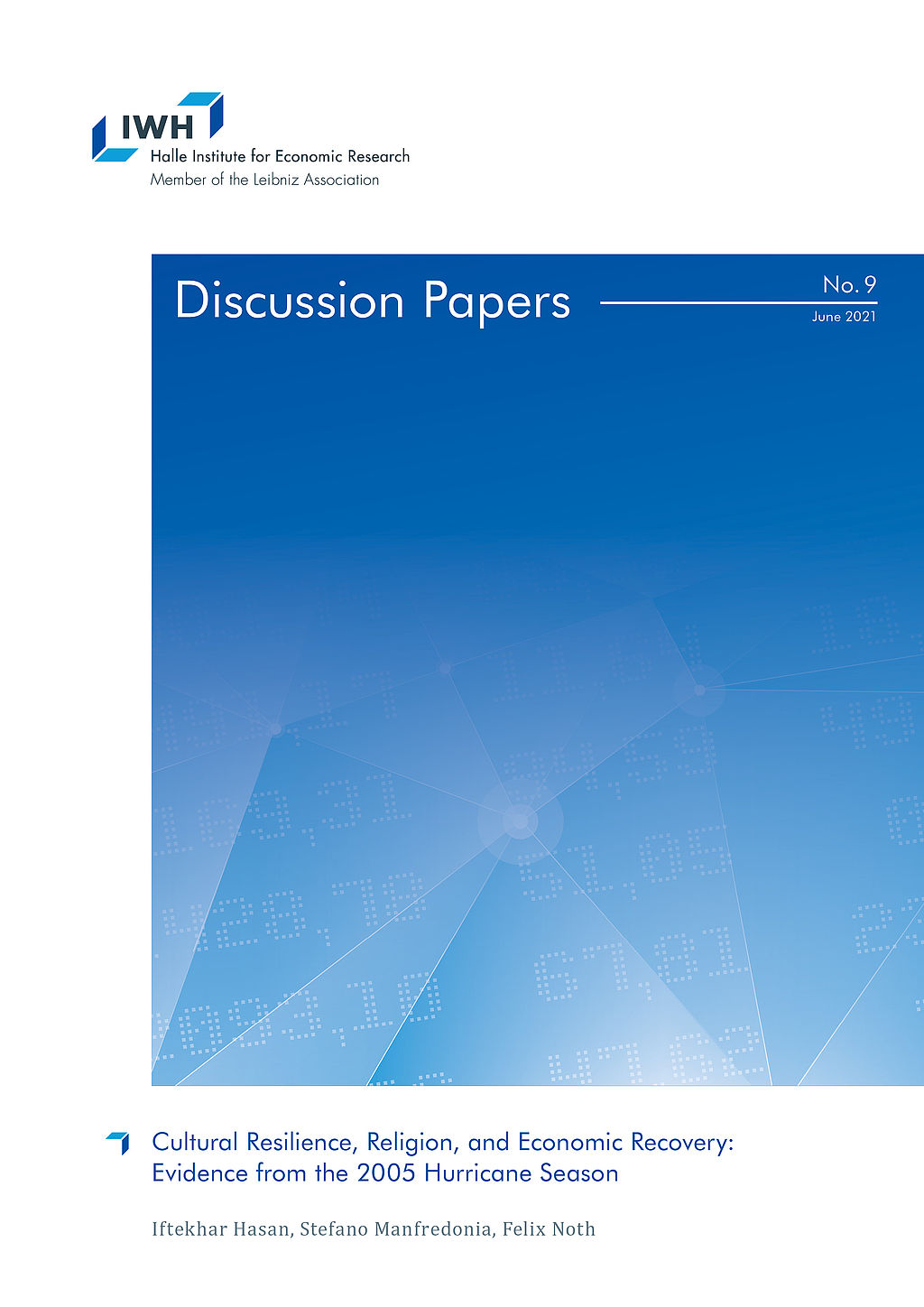
Cultural Resilience, Religion, and Economic Recovery: Evidence from the 2005 Hurricane Season
in: IWH Discussion Papers, Nr. 9, 2021
Abstract
This paper investigates the critical role of religion in the economic recovery after high-impact natural disasters. Exploiting the 2005 hurricane season in the southeast United States, we document that establishments in counties with higher religious adherence rates saw a significantly stronger recovery in terms of productivity for 2005-2010. Our results further suggest that a particular religious denomination does not drive the effect. We observe that different aspects of religion, such as adherence, shared experiences from ancestors, and institutionalised features, all drive the effect on recovery. Our results matter since they underline the importance of cultural characteristics like religion during and after economic crises.
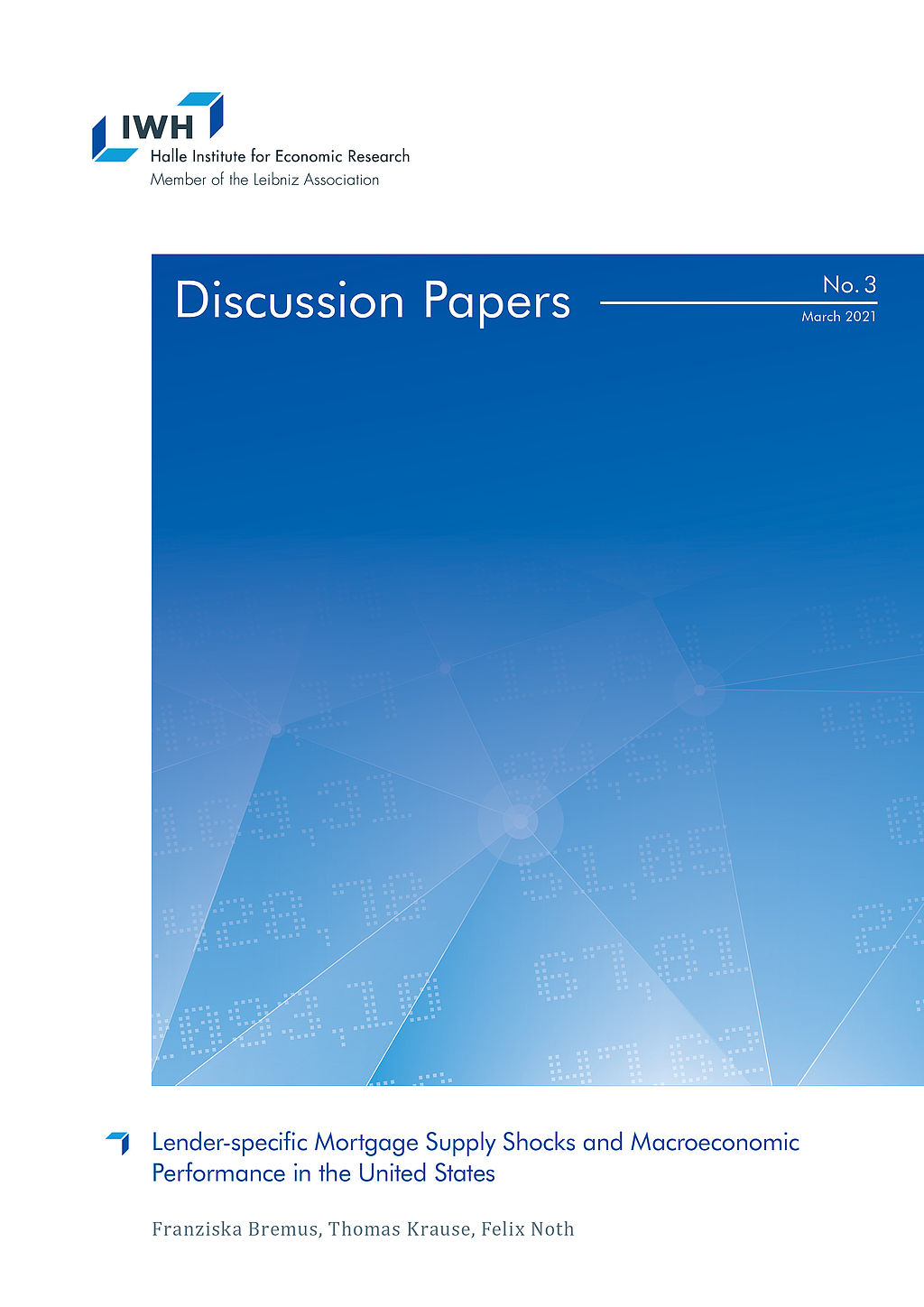
Lender-specific Mortgage Supply Shocks and Macroeconomic Performance in the United States
in: IWH Discussion Papers, Nr. 3, 2021
Abstract
This paper provides evidence for the propagation of idiosyncratic mortgage supply shocks to the macroeconomy. Based on micro-level data from the Home Mortgage Disclosure Act for the 1990-2016 period, our results suggest that lender-specific mortgage supply shocks affect aggregate mortgage, house price, and employment dynamics at the regional level. The larger the idiosyncratic shocks to newly issued mortgages, the stronger are mortgage, house price, and employment growth. While shocks at the level of shadow banks significantly affect mortgage and house price dynamics, too, they do not matter much for employment.
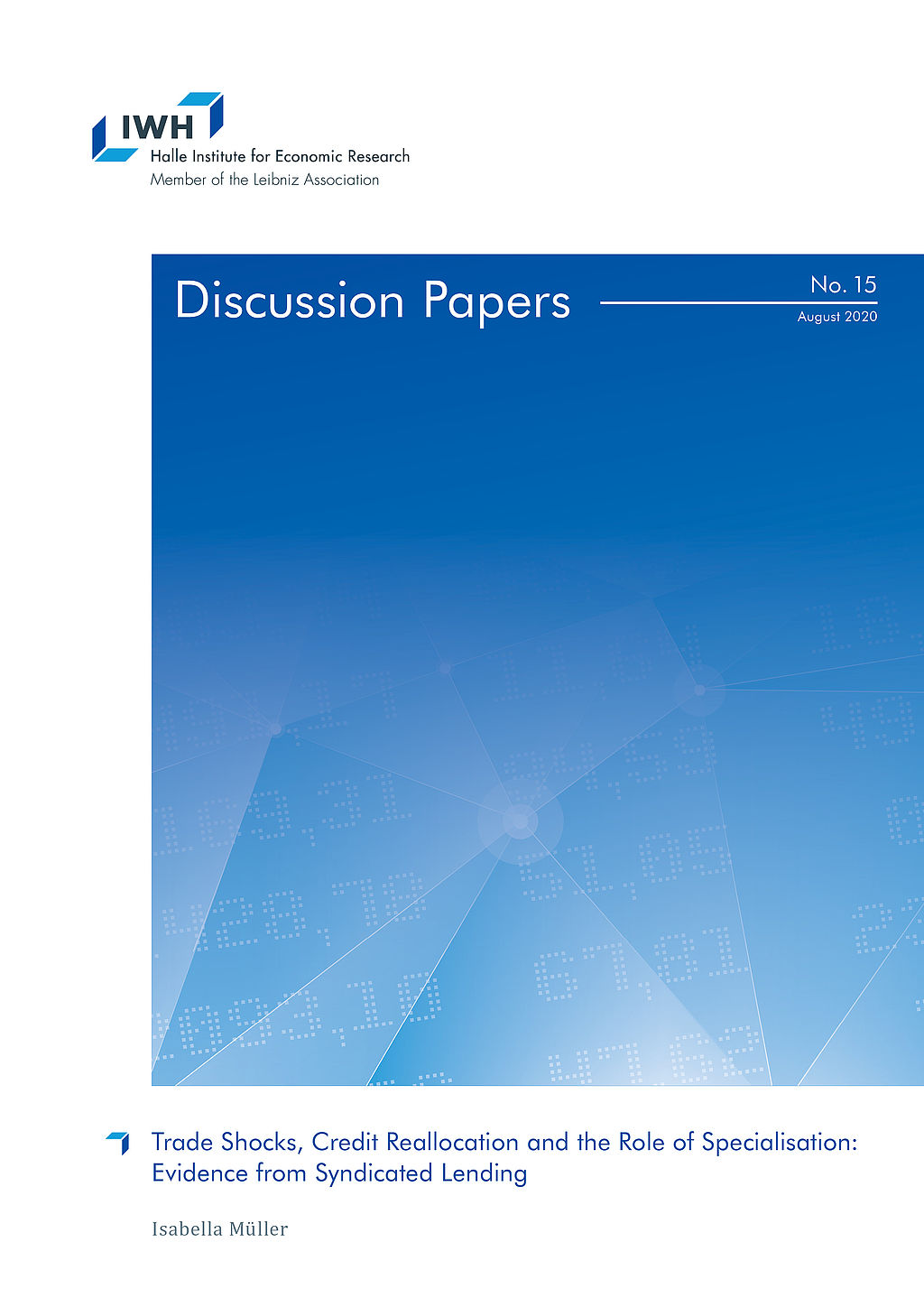
Trade Shocks, Credit Reallocation and the Role of Specialisation: Evidence from Syndicated Lending
in: IWH Discussion Papers, Nr. 15, 2020
Abstract
This paper provides evidence that banks cut lending to US borrowers as a consequence of a trade shock. This adverse reaction is stronger for banks with higher ex-ante lending to US industries hit by the trade shock. Importantly, I document large heterogeneity in banks‘ reaction depending on their sectoral specialisation. Banks shield industries in which they are specialised in and at the same time reduce the availability of credit to industries they are not specialised in. The latter is driven by low-capital banks and lending to firms that are themselves hit by the trade shock. Banks‘ adjustments have adverse real effects.
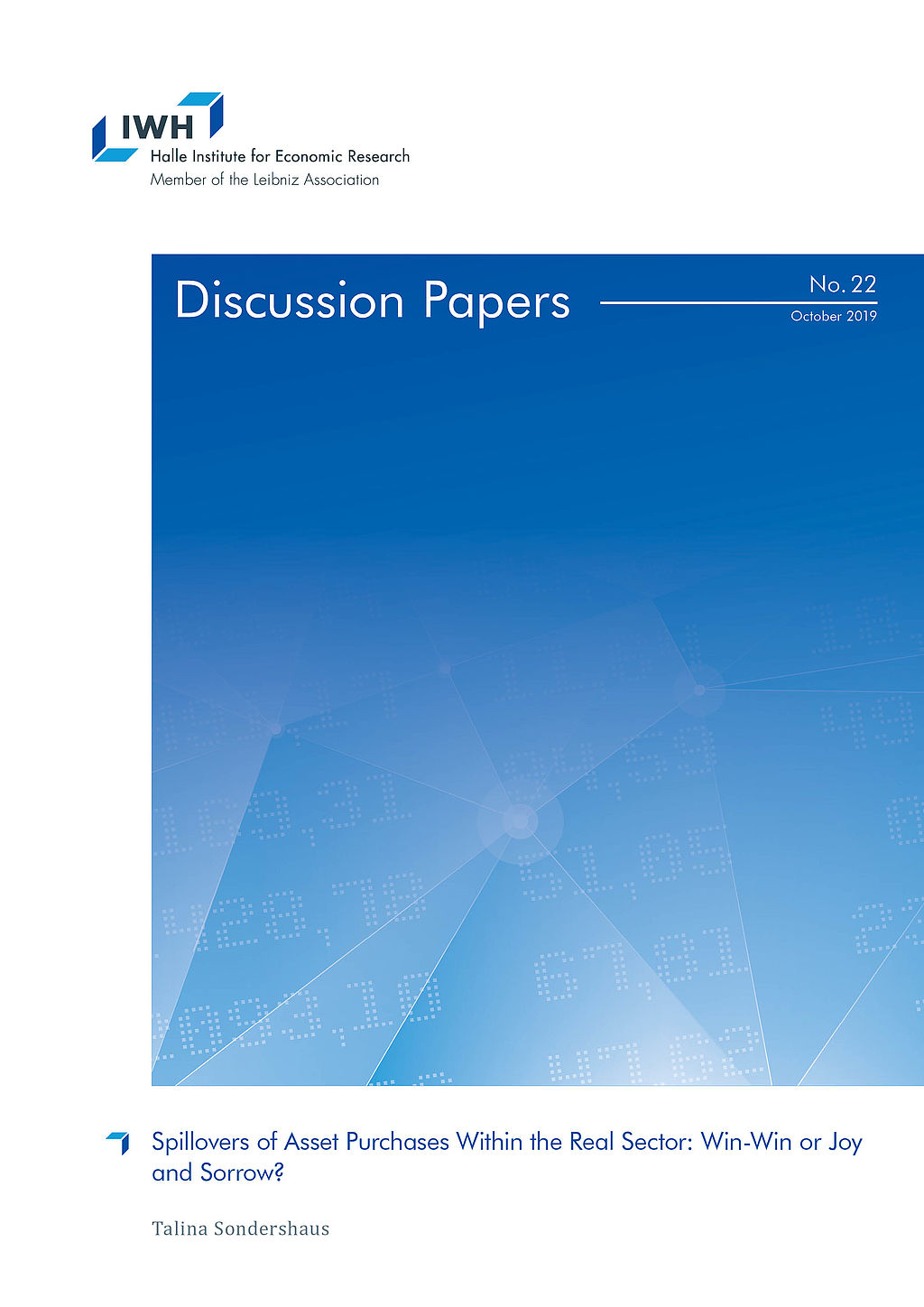
Spillovers of Asset Purchases Within the Real Sector: Win-Win or Joy and Sorrow?
in: IWH Discussion Papers, Nr. 22, 2019
Abstract
Events which have an adverse or positive effect on some firms can disseminate through the economy to firms which are not directly affected. By exploiting the first large sovereign bond purchase programme of the ECB, this paper investigates whether more lending to some firms spill over to firms in the surroundings of direct beneficiaries. Firms operating in the same industry and region invest less and reduce employment. The paper shows the importance to consider spillover effects when assessing unconventional monetary policies: Differences between treatment and control groups can be entirely attributed to negative effects on the control group.


















